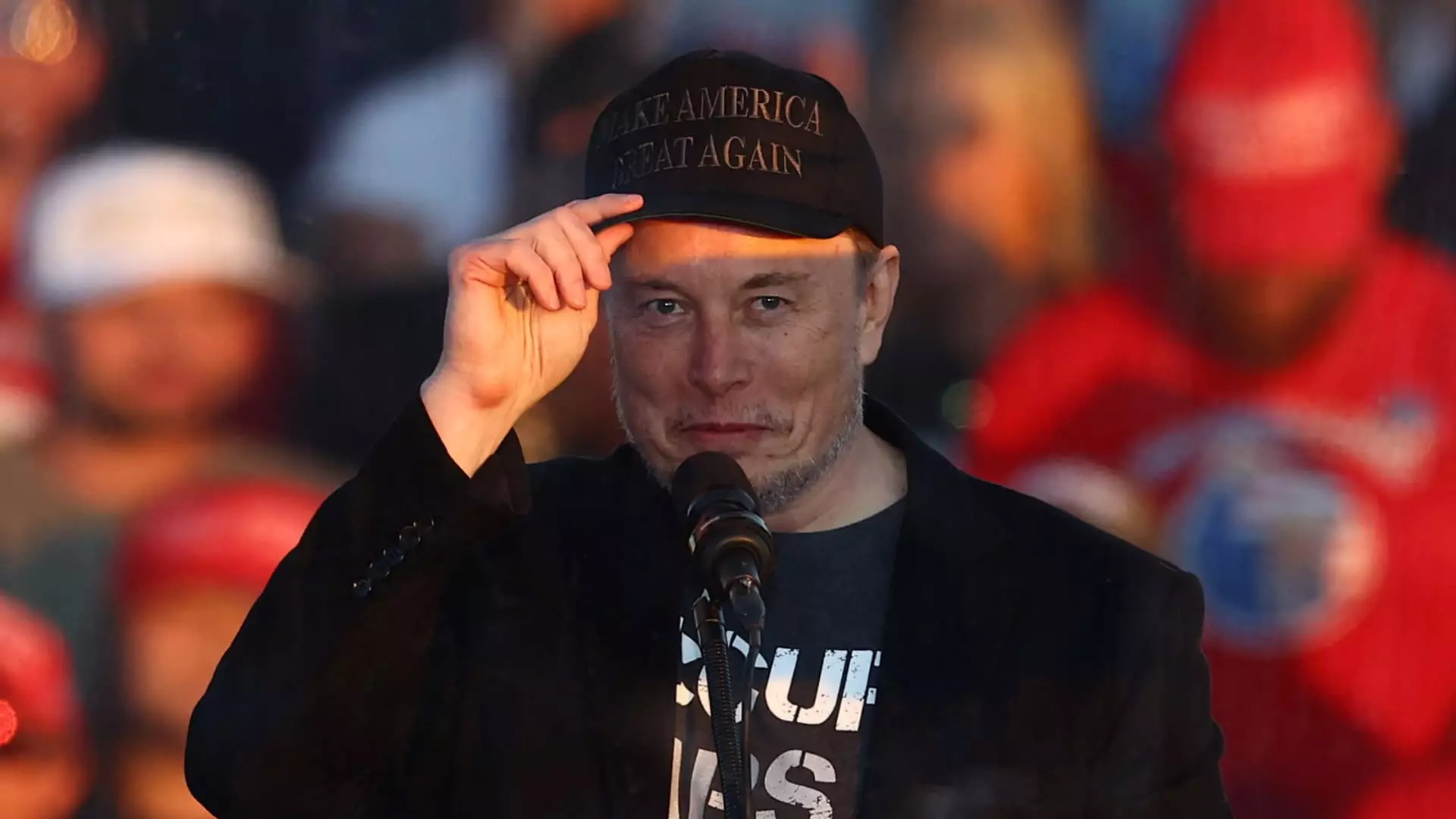Elon Musk, the prominent CEO of Tesla, is often a subject of discussion not just due to his innovative tech ventures but also for his controversial political stances. Recently, Musk has stirred outrage with his apparent support for the Alternative for Germany (AfD) party, a far-right political faction known for its nationalist and anti-immigrant rhetoric. By endorsing the AfD through a post on social media platform X, Musk has prompted widespread criticism, raising questions about the implications of his comments and the influence he wields due to his status as a billionaire.
Musk’s endorsement has captivated attention, not only because of his large social media following—over 200 million—but also because of the weight his opinions carry in contemporary political discourse. In a succinct message shared on Thursday, he remarked, “Only the AfD can save Germany,” an assertion that was accompanied by content from Naomi Seibt, a far-right influencer with a troubling history of promoting extreme ideologies. This incident underlines a broader trend in which influential business figures leverage their platforms to intervene in national politics, often without fully grasping the socio-political landscapes involved.
The AfD, characterized by its controversial positions on immigration, climate change, and European unity, has garnered significant traction in Germany. Musk’s comments arrive at a time when the party is poised to potentially secure a strong position in upcoming elections. This interplay between business influence and political dynamics raises critical concerns. Is it responsible for influential figures like Musk to engage with radical political parties, especially when their ideologies may clash with democratic values?
The immediate response to Musk’s endorsement was swift, notably from Senator Chris Murphy (D-Conn.), who labeled Musk as an “out of touch billionaire” and accused him of supporting a party with ties to neo-Nazism. Murphy’s comments accentuated the disjunction between Musk’s corporate success and the potentially harmful implications of his political endorsements. The detractors point to the AfD’s controversial leaders and their troubling historical references, including rhetoric that invokes Nazi symbolism and anti-Semitic beliefs.
In response to Musk’s allegations, German Chancellor Olaf Scholz dismissed the notion that the AfD could ‘save’ the nation. This counter-argument, bolstered by Scholz’s recent political shifts facing a coalition collapse, highlights a critical tension within German politics—one in which mainstream parties are increasingly wary of engaging with far-right factions, despite their rising popularity.
Musk’s political endorsements are not limited to the AfD. His interactions extend globally, encompassing support for figures like Italy’s Giorgia Meloni and Argentina’s Javier Milei, both of whom represent right-wing populist movements. Musk’s seemingly consistent alignment with such political figures warrants examination of a larger trend: the relationship between technology, wealth, and populism in a fragmented political landscape.
His financial support for the Trump administration has also attracted attention, paralleling the financial backing provided to various Republican causes. Observers note that this synergy between finance and politics can forge pathways for radical ideology to gain mainstream acceptance, especially among younger demographics attracted to figures like Musk.
Interestingly, while Musk champions electric vehicles and innovation, the AfD has expressed skepticism about the future of electric mobility in Germany. Concerns have emerged regarding Tesla’s factory outside Berlin, where the AfD has claimed that most employees commute from elsewhere, thereby limiting local economic benefits. This criticism poses a dilemma for Tesla, navigating a complex environment where political ideologies may trump business opportunities.
As Tesla chips away at its share in the competitive European market—evidenced by a significant decline in sales—Musk’s political maneuvers could affect consumer perception and ultimately impact the brand’s reputation. The juxtaposition of promoting progressive technology while aligning with regressive political ideologies creates a unique challenge.
In a world where technology magnifies influence and reach, Elon Musk stands at a complex intersection of innovation, wealth, social media engagement, and political controversy. His recent engagement with far-right factions in Europe showcases the potential hazards that accompany such prominence. As voters and citizens grapple with rising nationalism in various regions, the implications of political endorsements from figures like Musk cannot be underestimated. Ultimately, the debate remains: how should society respond to billionaire influences in politics, especially when aligned with radical ideologies that challenge the foundations of democratic governance?

